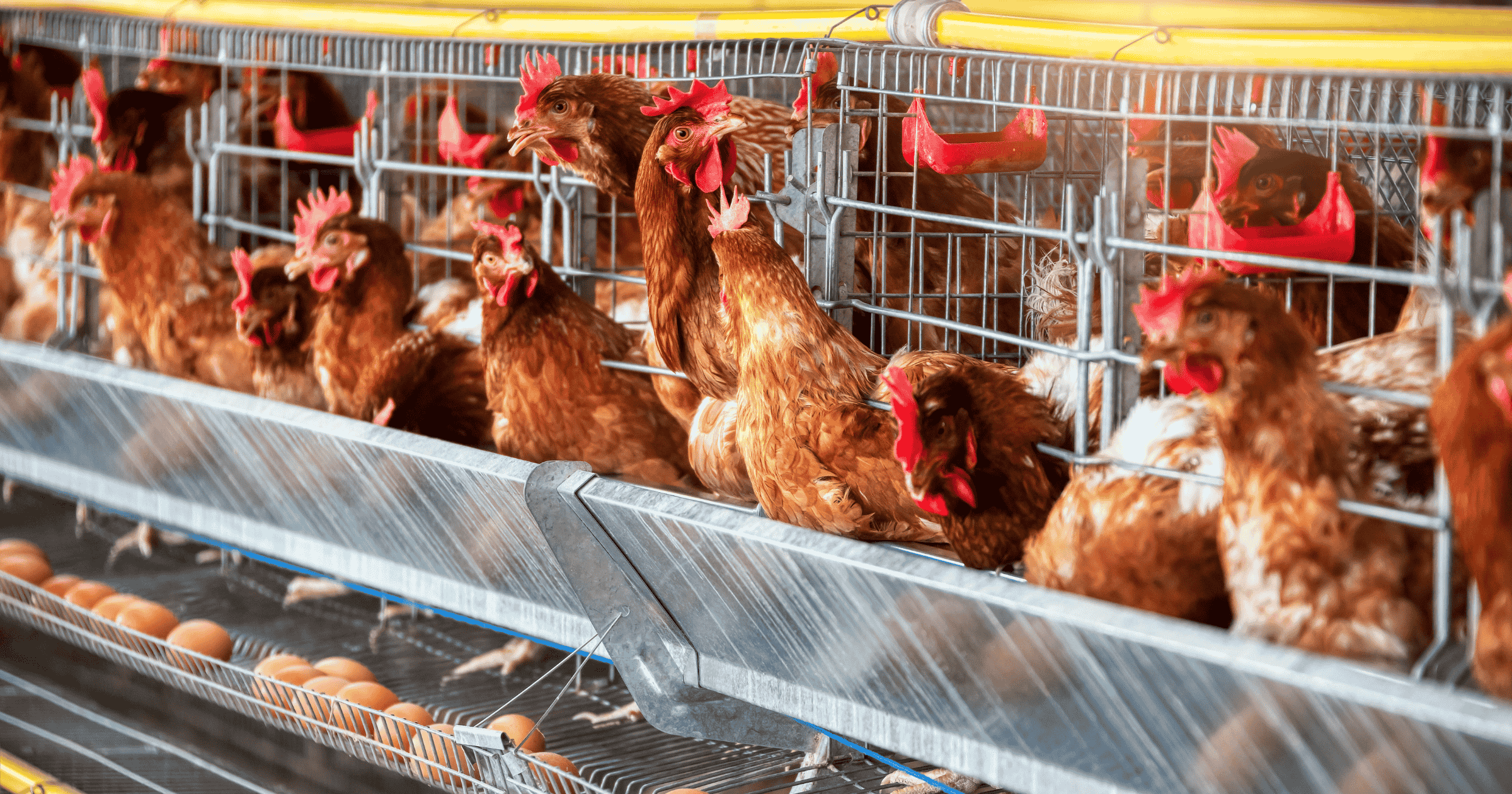
07 Apr Cost of Starting an Egg Farm in Nigeria: A Comprehensive Guide
Introduction: Understanding the Cost of Starting an Egg Farm in Nigeria
Starting an egg farm in Nigeria can be a profitable venture, but it requires careful planning and a clear understanding of the associated costs. From infrastructure to equipment, feed, and labor, the expenses can vary based on the scale of your operation and the type of facilities you intend to set up.
In this blog post, we’ll break down the costs involved in starting an egg farm in Nigeria, providing insights for anyone interested in joining the poultry farming industry. Whether you’re aiming for a small backyard operation or a large-scale farm, understanding these costs is crucial for success.
1. Initial Capital Investment: Setting Up the Farm
The first major cost when starting an egg farm in Nigeria is the capital investment for land, infrastructure, and facilities. Depending on the size of the farm and your goals, these expenses can vary widely.
Key Infrastructure Costs:
- Land: The cost of land varies significantly depending on the location. In urban areas like Lagos, land prices can be much higher than in rural areas. You’ll need enough space for the chicken coop, feed storage, water systems, and free-range grazing areas.
- Estimated Cost: Land prices in rural areas range from ₦500,000 to ₦5 million per acre, while urban prices can go much higher.
- Chicken Coop & Shelters: A well-constructed chicken coop is essential for the health and safety of your hens. Costs for building a coop include materials (wood, metal, roofing sheets) and labor.
- Estimated Cost: Building a basic chicken coop for 100-200 hens could cost between ₦300,000 to ₦500,000. For larger-scale operations, the price increases based on size and design.
- Water and Electrical Systems: Proper water supply systems (water tanks, piping, etc.) and lighting are essential for the well-being of your hens.
- Estimated Cost: Setting up a simple water and lighting system can cost anywhere from ₦100,000 to ₦300,000, depending on the infrastructure required.
2. Cost of Buying Hens and Breeds
The type of hens you buy plays a major role in the overall cost of your farm. The breed of chickens chosen for egg-laying determines their productivity and longevity.
Costs for Purchasing Hens:
- Local Breeds: Nigerian local breeds like the Nigerian Indigenous Chicken are more affordable but tend to have lower egg production rates compared to commercial breeds.
- Cost per Bird: Approximately ₦1,500 to ₦3,000 per hen.
- Exotic Breeds: Breeds like Hy-Line, Isa Brown, or Lohmann Brown are known for high egg production but come at a higher price.
- Cost per Bird: ₦3,000 to ₦5,000 per bird for high-yielding commercial breeds.
If you plan to start with 500-1000 hens, you should budget for ₦1.5 million to ₦5 million depending on the breed and number of hens.
3. Poultry Feed and Nutrition
Feed is one of the most significant ongoing expenses for an egg farm. The quality of the feed directly impacts the hens’ health and egg production rates. Poultry feed includes ingredients like maize, soybeans, fishmeal, and vitamin supplements.
Feed Costs:
- Starter Feed: Used for young chickens until they start laying eggs (usually between 16-20 weeks of age).
- Cost: ₦15,000 to ₦25,000 for a 50 kg bag of starter feed.
- Layer Feed: Once your hens start laying eggs, they need a specialized layer feed rich in protein and calcium to maintain egg production.
- Cost: ₦16,000 to ₦30,000 for a 50 kg bag of layer feed.
For a flock of 500-1000 hens, feed expenses could amount to ₦500,000 to ₦1.5 million annually, depending on feed consumption and the size of your farm.
4. Health and Veterinary Care
Ensuring the health of your hens is essential for maintaining high egg production and preventing disease outbreaks. Veterinary care includes vaccinations, medications, and routine health checks.
Health Costs:
- Vaccination: Vaccines for diseases like Newcastle Disease, Fowl Pox, and Infectious Bronchitis are necessary for keeping your hens healthy.
- Cost: Vaccination programs can cost anywhere from ₦20,000 to ₦50,000 per year for a 500-hen farm.
- Veterinary Services: Regular checkups and treatments for diseases, parasites, and other health issues are also part of the costs.
- Cost: Veterinary expenses can vary, but budget around ₦50,000 to ₦150,000 annually for routine care and treatments.
5. Labor Costs
Labor is another significant cost when starting an egg farm. You’ll need workers to help with the care of your hens, feeding, cleaning the coops, collecting eggs, and managing the farm.
Labor Expenses:
- Farm Workers: Depending on the size of the operation, you may need one or more workers. The cost of hiring workers will vary based on their experience and the scope of work.
- Cost: ₦20,000 to ₦50,000 per month per worker for general farm labor. Larger farms may require 3-5 workers.
6. Miscellaneous Costs
There are several additional costs associated with running an egg farm that you should account for.
Additional Expenses:
- Transportation: If you plan to sell eggs locally or supply to markets, budget for transportation costs.
- Cost: Transport expenses could range from ₦50,000 to ₦200,000 per month, depending on the scale of distribution.
- Packaging: Packaging for eggs (cartons, egg trays, etc.) is necessary for marketing and sales.
- Cost: Packaging costs could range from ₦50,000 to ₦100,000 annually for a 500-hen farm.
- Marketing: Branding, advertising, and promotions to sell your eggs to local markets and customers.
- Cost: Marketing expenses may range from ₦100,000 to ₦300,000 annually.
7. Ongoing Operational Costs
Starting an egg farm involves not only the initial investment but also the ongoing expenses. These include feed, health care, labor, and maintenance of the infrastructure.
Ongoing Costs:
- Feed: As mentioned, feed is an ongoing expense and usually makes up the bulk of operational costs.
- Utilities: Water and electricity for maintaining the farm’s operations.
- Coop Maintenance: Ensuring that the chicken coop and farm infrastructure remain in good condition.
Conclusion: Starting an Egg Farm in Nigeria
Starting an egg farm in Nigeria requires careful planning and investment. The total cost can range from ₦2 million to ₦10 million or more, depending on the size and scale of the operation. With the right planning and management, an egg farm can become a profitable venture.
Ensure that you account for all these expenses—capital investment, feed, veterinary care, labor, and miscellaneous costs—so you can budget effectively and set your farm up for success.
Recent posts
- How to Make Akara and Moi Moi with Farm Eggs | Delicious Nigerian Recipes
- How to Make Perfect Omelettes with Farm Eggs | Easy, Delicious Recipe
- Easy Egg Salad Recipes with Farm Fresh Eggs | Delicious & Nutritious
- Deviled Eggs with Local Nigerian Ingredients | Easy Recipe
- Delicious Nigerian Dishes Made with Eggs | Tasty Egg Recipes
Your cart
Your cart is currently empty!








No Comments